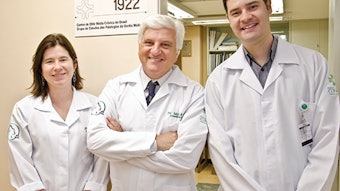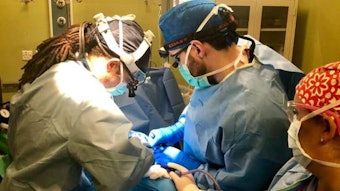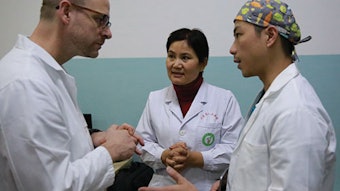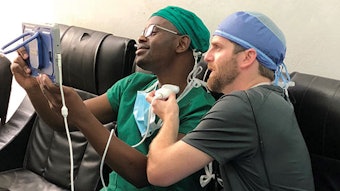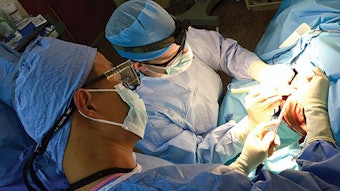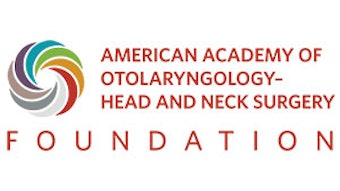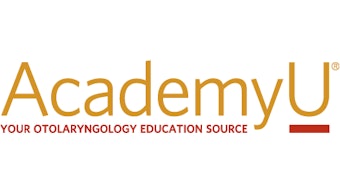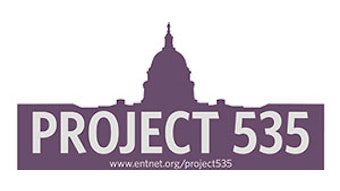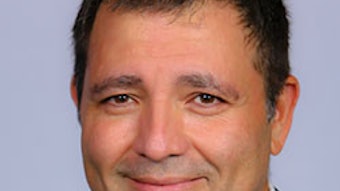AAO-HNS reviews and comments on the ABMS “Vision Initiative” draft recommendations
As if the medical community needed another pillar of uncertainty, the Continuing Board Certification: Vision for the Future Commission, created to review “continuing certification” within the context of medical practice, released their draft report with 15 numbered recommendations moving forward.
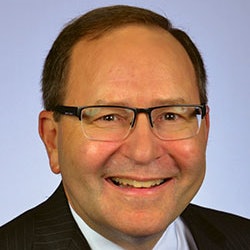 James C. Denneny III, MD
James C. Denneny III, MD
AAO-HNS/F EVP/CEO
Prior to our Board of Directors (BOD) meeting in Alexandria, VA, held on January 12, 2019, considerable research was done reviewing their recommendations and seeking input from members from all practice types. This was before the creation of our response letter, due three days after the meeting. I would like to thank all those participants led by the Administrator Support Community for ENT (ASCENT, formerly AOA, particularly the Large Group Executive Forum) and Brian Nussenbaum, MD, Executive Director of the American Board of Otolaryngology – Head and Neck Surgery (ABOHNS), who provided input helpful in crafting the letter to match the thoughts and concerns of our members. The BOD had a vigorous and complete discussion of the issues, during which the views of the members and invited guests provided invaluable insight.
First and foremost, both the American Board of Otolaryngology – Head and Neck Surgery and the ABOHNS support ongoing participation in lifelong learning with some form of assessment that is proven to identify gaps in knowledge and/or skills that result in improved patient care. It is also critical that these activities don’t alter normal workflow or create undue burden financially or on the physician’s most important resource, time. That can only come by respecting the diplomates and encouraging their feedback in the process. Another concern of this draft report* was the rigid system proposed that would limit the ability of innovative boards, such as ABOHNS, to implement solutions tailored to their respective specialties that reach the desired goals in a way that benefits diplomates and patients alike.
The BOD discussed and approved possible bylaw changes that will be included on the ballot in this year’s election. We are continuing to attempt to identify opportunities to further integrate residents into Academy functions, and one of the recommended bylaw changes would allow residents to become voting members in our committee structure. AAO-HNS/F President Albert L. Merati, MD, championed initiatives that will further integrate our residents into the governance structure of the organization. We will be creating a research opportunity in health policy for residents, which we hope will become an attractive option during their research rotation. We are also working with the Society of University Otolaryngologists (SUO) to expand the “Boot Camp” training opportunity to make it available to all first-year residents over the next several years.
One of the most encouraging aspects of the recent BOD meeting was the robust, inclusive discussion conducted on several critical issues. This has been a goal for some time, and the last two meetings demonstrate how effective and powerful this can be. If you have input that you feel is valuable to the organization or specialty, please contact those representing you or me directly.
* Supplement on MOC
When the American Board of Medical Specialties (ABMS) through its “Vision Initiative” released its draft report “Vision for the Future” on December 14, 2018 there was considerable concern by our members regarding certain recommendations within the draft report. After performing a survey of over 1,000 members, the AAO-HNS submitted a comment letter prior to the January 15, 2019, deadline. The ABMS commission issued its final report on February 12, 2019. The final report contains modifications that I feel address many of the concerns our members expressed during the survey process. As with any report, the proof will lie in the actual execution of the concepts. It will be of paramount importance as these processes are developed that the stakeholders continue to be intimately involved moving forward.
The entire report can be viewed at https://visioninitiative.org/commission/final-report/, but key takeaways include the intention to discard the term “Maintenance of Certification” and replace it with “Continuing Certification.” The commission also states that it is the job of the ABMS to promote the concept that continuing certification should not be the determining factor for licensure, hospital privileges, and payer participation for the physician community. In the majority of circumstances, continuing certification will be based on multiple factors, and the high-stakes examinations of the past will not be relied upon. The flexibility that appeared to be removed in the draft document allowing individual specialty boards flexibility appears to have been reinstated to some degree with the goal “that continuing certification should have a focus on specialty-specific physician learning and the advancement of clinical practice.”
They have also moved away from the statement expecting all diplomates to engage in certification activities yearly to the expectation that “the diplomates will engage in some learning, assessment, or advancing practice work annually.” The commission noted “that procedural skills are a major component of practice for some specialties,” and they further suggest that “ABMS Boards should work toward incorporating skills learning and assessment into continuing certification programs.” They acknowledged that “specialty-specific differences can and should exist.” They also recognize the need to do research into mechanisms for continuing certification and the value to patient care derived from these processes. Finally, the commission has altered its language in the most critical area to our members to state “ABMS Boards must facilitate voluntary engagement of lifetime certificate holders in continuing professional development through a supportive form of continuing certification.”
Accomplishing these ideals will require collaboration between all stakeholders in an ongoing basis to succeed, and the AAO-HNS is prepared to work with the American Board of Otolaryngology – Head and Neck Surgery to ensure these goals are reached. We continue to value and seek our members’ input as this process moves forward.

